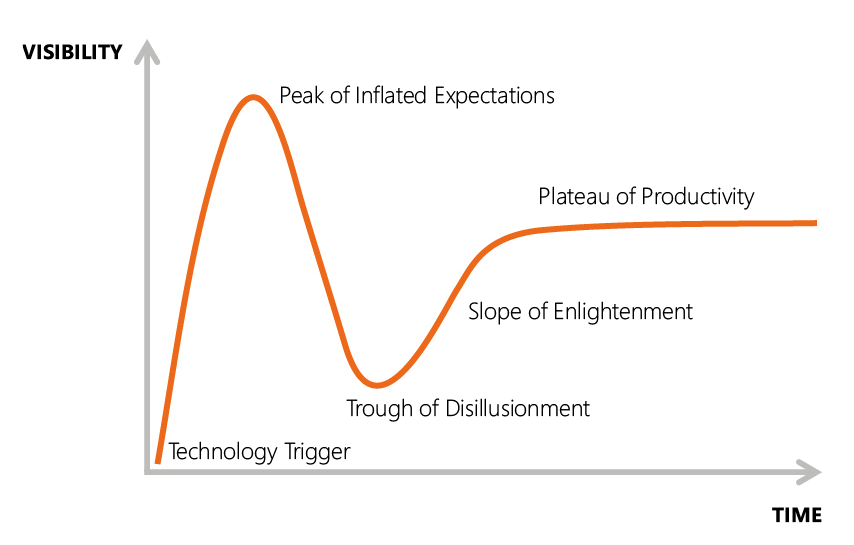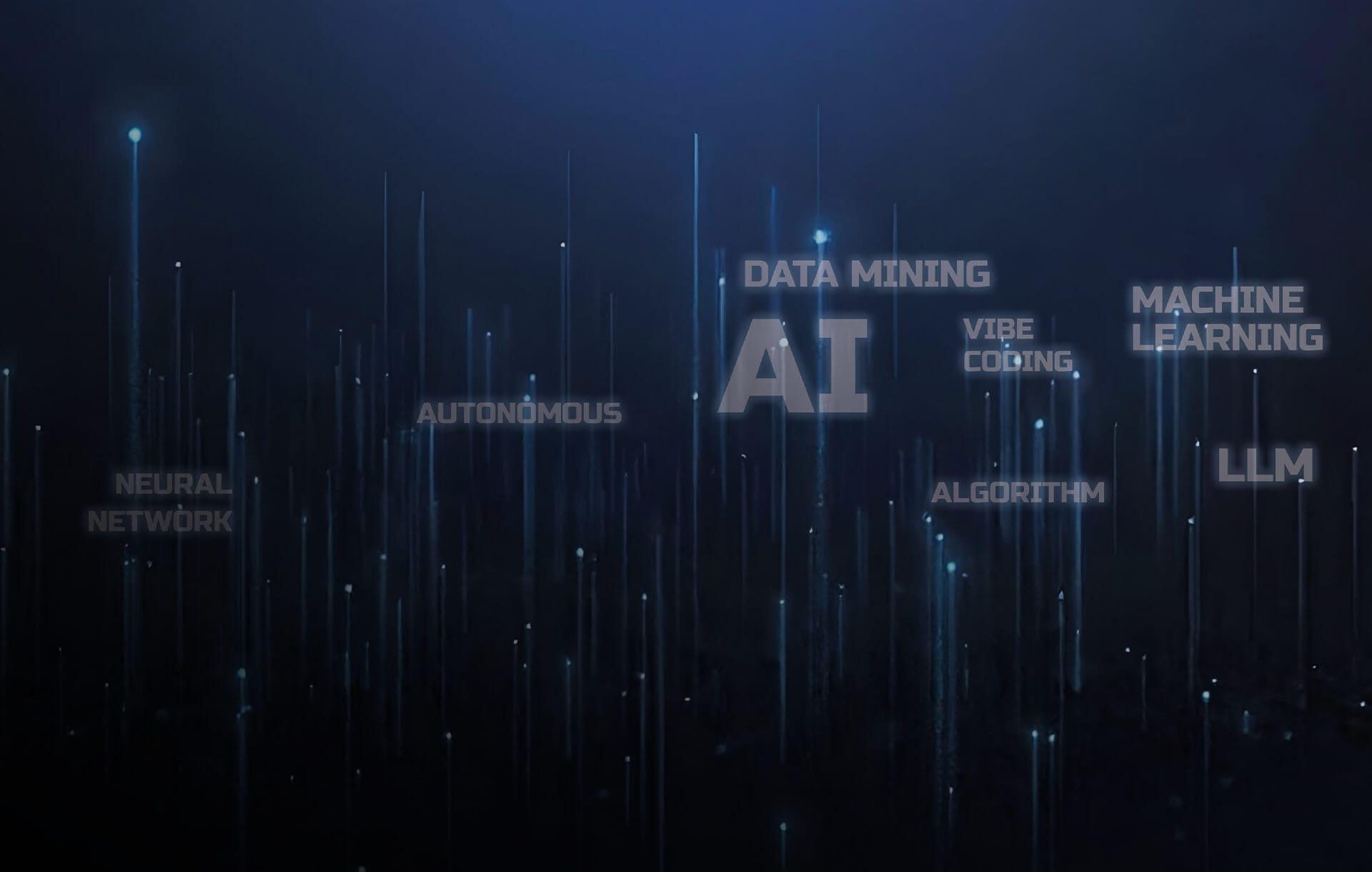
Will AI replace developers?
A conversation between an Enthusiast, a Manager and a Sceptic
Judging by recent headlines, I should probably rename this text to: “When will AI replace developers?” But as soon as we look at the comments below these articles – often written by developers themselves who already use AI to support their daily work – the picture becomes less clear. On the one hand, we have a group of enthusiasts; on the other, sceptics; and in between, managers, directors, and CEOs who need to bet on a scenario: what exactly does ‘software development’ mean in our AI-supported future? I invited the representatives of these three groups to discuss this question and to compare their arguments.
Judging by recent headlines, I should probably rename this text to: “When will AI replace developers?” But as soon as we look at the comments below these articles – often written by developers themselves who already use AI to support their daily work – the picture becomes less clear. On the one hand, we have a group of enthusiasts; on the other, sceptics; and in between, managers, directors, and CEOs who need to bet on a scenario: what exactly does ‘software development’ mean in our AI-supported future? I invited the representatives of these three groups to discuss this question and to compare their arguments.
Vibe coding
Enthusiast: Have you come across the phrase ‘vibe coding’? The term was coined in February 2025 and gained immense popularity. It describes creating software programs without… programming. We can instruct GenAI models to write code and get a working program as output. We check the results and add further instructions – what should be added, changed or fixed. This way, we iteratively approach the final version of our application.
Manager: Indeed, I found some very impressive YouTube videos demonstrating this approach. Apps that would typically take weeks to build could be generated in mere hours – or even minutes…
I wonder if we are witnessing the advent of the next generation of programming languages. We started with machine code, where we had to literally concatenate zeros and ones into computer programs. Today, we spend most of our time writing code in so-called third-generation languages (Java, C#, or JavaScript) or 4GLs such as SQL and ABAP. In just a few lines of code, we describe what will later be translated into hundreds of processor instructions.
We also have the promise of fifth-generation languages (e.g. Prolog), which are based on problem description and constraints, without going into implementation details. But I don’t see many practical business implementations of 5GLs. Possibly, we are reaching that ideal now – just by different means?
Enthusiast: I think it is an apt analogy. Andrej Karpathy (who came up with the phrase ‘vibe coding’) stated that the most popular programming language in the future is going to be… English.
Sceptic: I agree that AI can be effective in supporting software developers’ work, and the results of LLMs (Large Language Models) are truly impressive. At the same time, I am afraid we are drawing overly ambitious conclusions from recent advances.
M: These aren’t just mine conclusions. In 2024, Nvidia CEO Jensen Huang advised against learning programming languages, as this skill is going to be obsolete soon. And Mark Zuckerberg, in an interview at the start of 2025, stated that AI is going to replace not only junior but also mid-level software engineers – by the end of the year.
S: The YouTube videos we mentioned – e.g., demos from OpenAI or Google conferences – present a narrow set of scenarios that are usually successful: new implementations of Snake or Tetris games, to-do lists, or other simple forms that store records in a database. Indeed, in those cases, with a good prompt, an LLM can generate a complete working program.
But usually, these are not production-ready applications for serious use. A competent programmer should always review their code – for security and logic. Otherwise, we risk trouble. Some functions may turn out to be just a façade: a pretty UI with no real processing logic. They may also collect user data in a way that does not ensure security.
Secondly, as soon as your application becomes more complex – adding features and components – the effectiveness of this approach diminishes. More and more often, the LLM ‘hallucinates’ – attempting to call non-existent services or libraries. Overall solution architecture also deteriorates unless supervised by a competent developer. Vibe coding may be effective – but only if the operator knows programming, good development practices, and intervenes regularly to steer progress.
E: So you admit, GenAI facilitates and accelerates software development?
S: Certainly. But the hyper-optimistic narrative about LLMs in this field is, in my opinion, greatly exaggerated. We promise the future of ‘programming without programmers,’ which is unrealistic. It’s just like promising that a taxi will take me to a selected address – so I don’t need to know the city or even have a driving license. But midway, the driver starts getting lost and asking me for directions – and close to the destination, he decides to hand over the steering wheel to me.
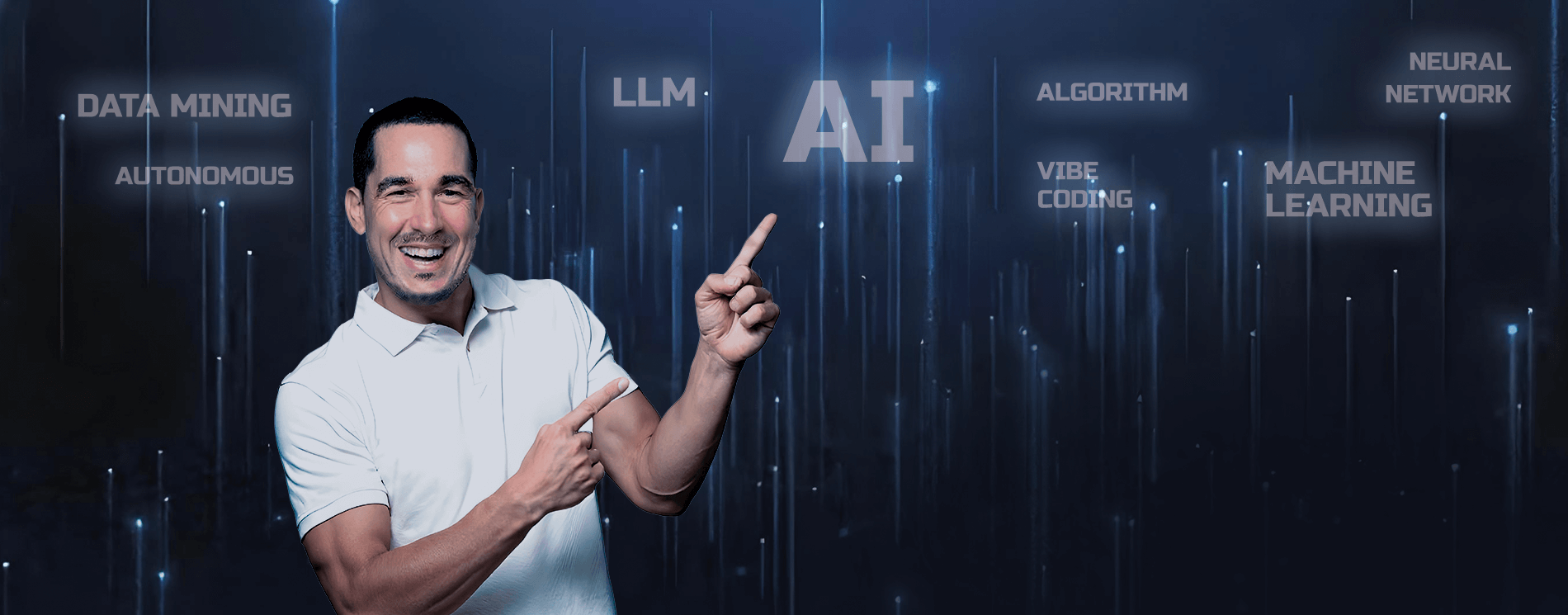
Have you come across the phrase ‘vibe coding’? It describes creating software programs without… programming. We can instruct GenAI models to write code and get a working program as output.
New technologies on the hype curve
M: Research firm Gartner uses the “hype cycle” model to describe the evolution of emerging technologies. Innovations are introduced and picked up by the media with a lot of excitement. As coverage increases, expectations for the technology’s impact rise rapidly. They quickly reach a level that exceeds actual capabilities. After the peak of inflated expectations, disappointment sets in, as it becomes clear that the initial promises are not fulfilled. We enter the trough of disillusionment. Meanwhile, technology gradually matures, costs decrease, and efficiency improves. Eventually, the hype curve and the curve of actual capabilities begin to overlap. We reach the phase of enlightenment and productivity.
S: The best-known example of this cycle was the dot-com bubble between 1995 and 2002. Blockchain, the metaverse, IoT – all followed a similar trajectory. In my opinion, with GenAI we’ve already passed the peak of expectations and are approaching a steep decline. Customers are becoming impatient, realizing the immense hype hasn’t yet translated into real business benefits.
E: You have just mentioned that over time, costs decrease and efficiency improves. So even if today’s LLMs can replace a software developer in, let’s say, 20% of tasks – this ratio may grow toward the 100% forecasted by Zuckerberg.
S: I admit the hype cycle still surprises me. Usually, the media focus on negative news – it draws more attention. But in the early hype stage, it seems everyone puts on rose-colored glasses and ignores obvious limitations!
Take this: we train language models with massive volumes of text data – Wikipedia, books, code repositories, social media. Further improvements require even more input. But AI has already – figuratively – ‘read the entire internet’. And new content will increasingly be co-authored by AI, thus less original, less useful for enriching the models.
Gatner's hype cycle
Hey AI, could you please train yourself?
M: We thought the same about chess or Go algorithms. When trained only on games played by humans, progress was modest. But with ‘self-play’ – where neural networks improve by playing against themselves – we saw real breakthroughs. Deep Blue beat Garry Kasparov (1996), AlphaGo beat Lee Sedol (2016). Today, a smartphone chess app performs far better than any human grandmaster.
E: As of mid-2025, we don’t yet have a universal self-play training model for LLMs, but it’s a subject of intense research. One area being explored is generating programming challenges, solving them, and automatically evaluating the results.
S: The largest neural networks that outperform humans in games like chess or Go have around 100 million parameters. Today’s LLMs have hundreds of billions – or even trillions. Their responses are generated token by token in a loop, each iteration based on the previous one. The whole network (or part of it) is activated every time to append an output token. In other words, we perform billions of multiplication and addition operations in these loops. It strikes me as a very inefficient form of data processing!
Yes, GenAI can create truly impressive results – but it also returns false or illogical answers from time to time. And I’m not convinced that, on our current path, we’ll ever reach a stage where LLMs’ answers don’t require careful verification… When will we be able to simply trust them?
So far, we can observe funny mistakes in our own conversations with ChatGPT or read about them in the media. But when these errors affect serious topics like application security, they are not funny anymore.
E: I’ll repeat myself: the models keep improving – this is the natural path of every technology.
S: They also keep getting more expensive – during both training and runtime. For instance, ‘reasoning models’ that run an internal monologue to decompose the problem into smaller parts, which indeed improves the quality of the results – generate far more tokens (around 10x) than the earlier generation.
In 2024, OpenAI – the most prominent player in this category – had USD 4 billion revenue and … USD 9 billion in costs. Sam Altman recently said he expects the company to be cash-flow positive in 2029, provided revenue reaches USD 125 billion. That’s a long timeline – and even that may be optimistic.
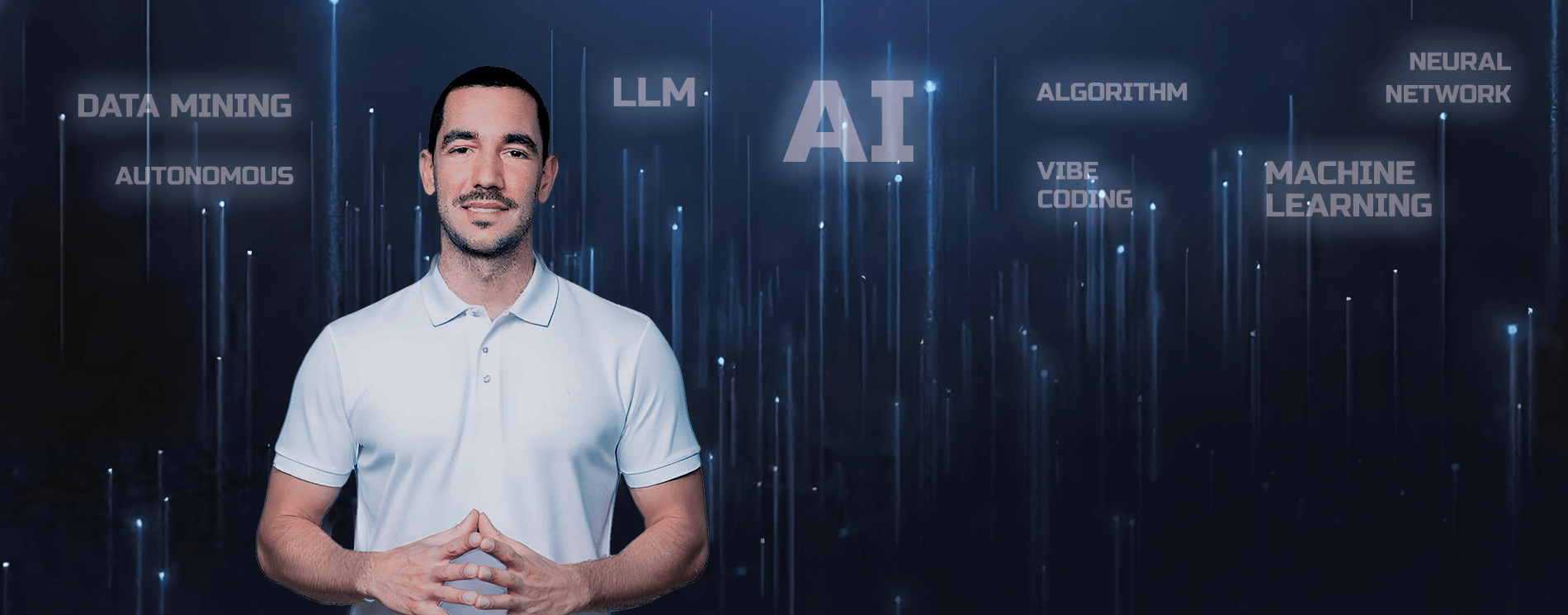
The task for management is to provide a safe environment for using GenAI. You need to carefully review service agreements and select a solution that does not capture the code of your software and does not use it for further training.
Chatbot as a team member
M: Let’s return to the reality of today’s workplace. Do we all agree that AI is a useful tool for software development?
S: Certainly. But to use it, we need the right approach. I believe we should not think of it as a ‘tool’ but rather as a new member of the team – one that is very skilled in certain kinds of tasks, worse in others, and whose results need to be verified before we incorporate them into the production environment. This is not so different from the typical setup where we have a business analyst, an architect, a senior developer and a few juniors – to whom you delegate well defined tasks.
M: What kinds of tasks?
S: At the start of the conversation, we mentioned prototyping new applications. Generating the initial version of an app can save days of effort – even if, at a later stage, we continue the development in a more traditional way.
If we already have an existing codebase but we have not looked at it for a long time, we can ask an LLM to analyze and describe it. This will allow us to quickly comprehend the overall structure, identify specific points where we need to add new functionality or correct errors.
E: For many years, we have had the autocomplete feature in code editors – based on a few initial letters, it suggests variable names or functions. Now, GenAI takes it to a completely new level: it can suggest correct autocompletes for whole blocks of code, based on the existing program and our comments. The developer can accept, reject, or modify such a proposal. Most experiments demonstrate that even if we reject some of the suggestions, this way of working improves overall productivity.
S: An LLM can be an effective advisor of a software developer and a good alternative to internet search. Eventually, you reach the same information, but much faster. The chatbot can compare descriptions of multiple solutions (from programming forums, blogs, books, etc.), select the one most closely my query and may even adjust it to the context. But I need to remind you of my earlier warning: you must not accept such a response uncritically, without careful review.
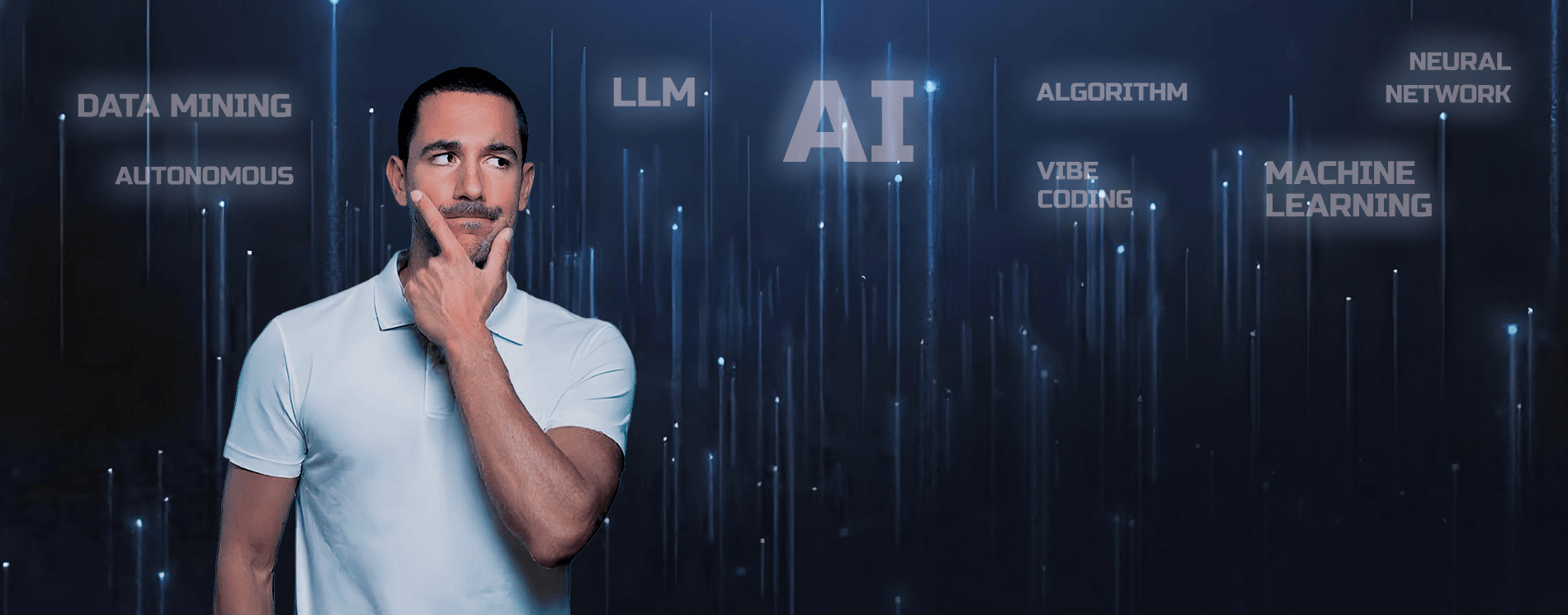
An LLM can be an effective advisor of a software developer and a good alternative to internet search. Eventually, you reach the same information, but much faster.
Scenarios for the future
M: Based on what I’ve heard I can imagine two completely different scenarios. And I cannot tell yet which one I find more probable.
The first one is the fulfilment of the enthusiasts’ vision. Maybe not within a year as suggested by Zuckerberg, but more likely within five to ten years. The majority of ‘business applications’ – databases, reports, dashboards, automation of repeatable processes – will be built by GenAI, so the demand for software developers is going to be considerably lower.
The alternative would be the continuation of IT trends we have seen so far. Between the mid-20th century and today, we have witnessed incredible growth in programmers’ productivity. We started with writing programs by punching zeros and ones on pieces of cardboard. Today, we have powerful (and often free) integrated development environments that combine code editors, debuggers, and profilers. And yet the demand for software developers has not declined (not counting short-term fluctuations) but continues to grow. The more accessible hardware and software become, the more we expand the range of their applications, and the demand for programmers follows as a result.
Managers need to handle this uncertainty somehow. I would like to hear a few practical recommendations: what should we do today in order to introduce GenAI as support for software development teams?
S: The task for management is to provide a safe environment for using GenAI. You need to carefully review service agreements and select a solution that does not capture the code of your software and does not use it for further training. This could affect your company’s intellectual property rights or violate NDAs with your customers.
E: That’s right. But – apart from a reasonable service agreement – I wouldn’t attach too much importance to the question of which specific tools you are using. The ranking of the best LLMs in coding benchmarks changes every few weeks. I consider gaining general experience – e.g. learning how to treat a chatbot like another productive member of your team – much more important than knowing a specific model.
Delegating tasks or code reviews are typically not the favorite activities and strengths of many developers. Yet in the new reality, they will become a regular part of their daily work. The difference is that now, instead of another person, you may more often delegate part of a task to AI. That’s why it is crucial to develop these skills.
S: I would also add requirements analysis, curiosity about the needs of your users, and a willingness to understand their perspective. You need these in order to develop an accurate specification for a new program, instead of passively waiting for the business to articulate their needs.
These skills will remain valuable. A correct definition of the problem to be solved is the foundation for achieving the right end result – regardless of whether the code will be written by a human or co-created by GenAI.
M: Thank you for the debate and your recommendations.

Delegating tasks or code reviews are typically not the favorite activities and strengths of many developers. Yet in the new reality, they will become a regular part of their daily work
Conclusions
- Regardless of our opinion on on the future of GenAI, it can already increase software developers’ productivity today. If we ignore this fact, our competitors will gain an advantage.
- We are still in learning mode, discovering the capabilities and limitations of the new tools. The general mindset of the organization and individual developers is more important than using a specific product from a particular vendor. The ranking of the top AI developer support tools is not yet firmly established.
- Invest in developers’ soft skills: communication, requirements analysis, task decomposition, and delegation. GenAI models themselves are a category of programs executed by computers (often in the cloud, sometimes on our local devices), yet they exhibit many traits we once associated only with people – they can make mistakes or confabulate. At the same time, they can also effectively solve problems that, just a few years ago, seemed to belong exclusively to the domain of humans.
The roles of the Manager, the Enthusiast, and the Sceptic were taken on by
Michał Kunze, President of the Board, All for One Poland

